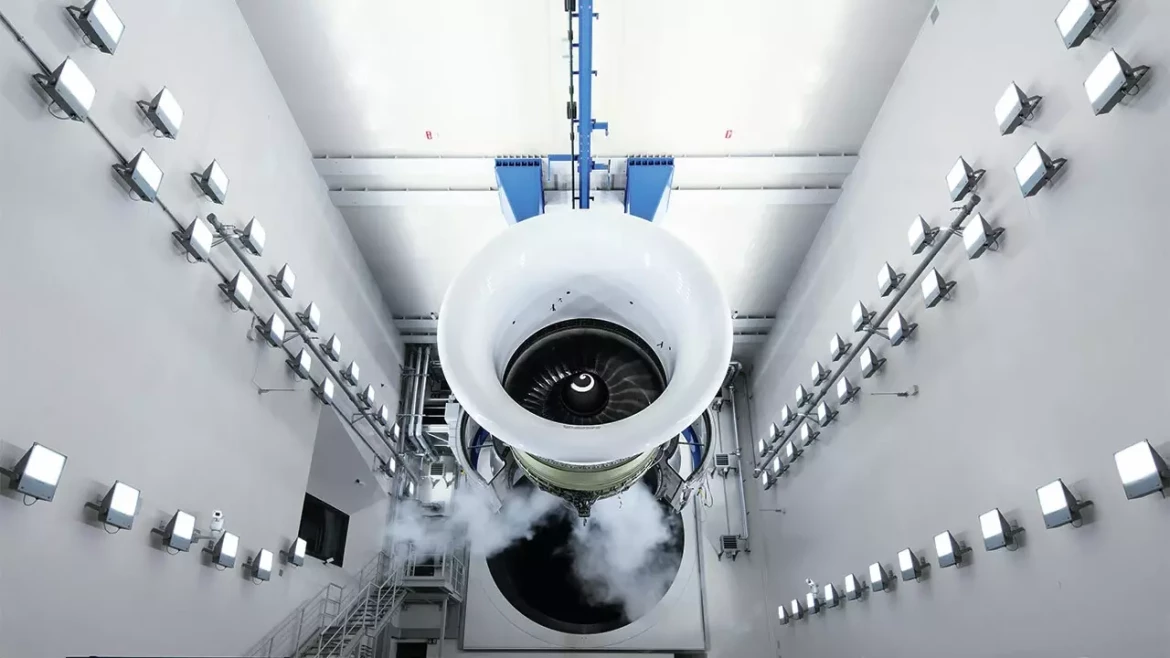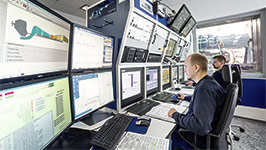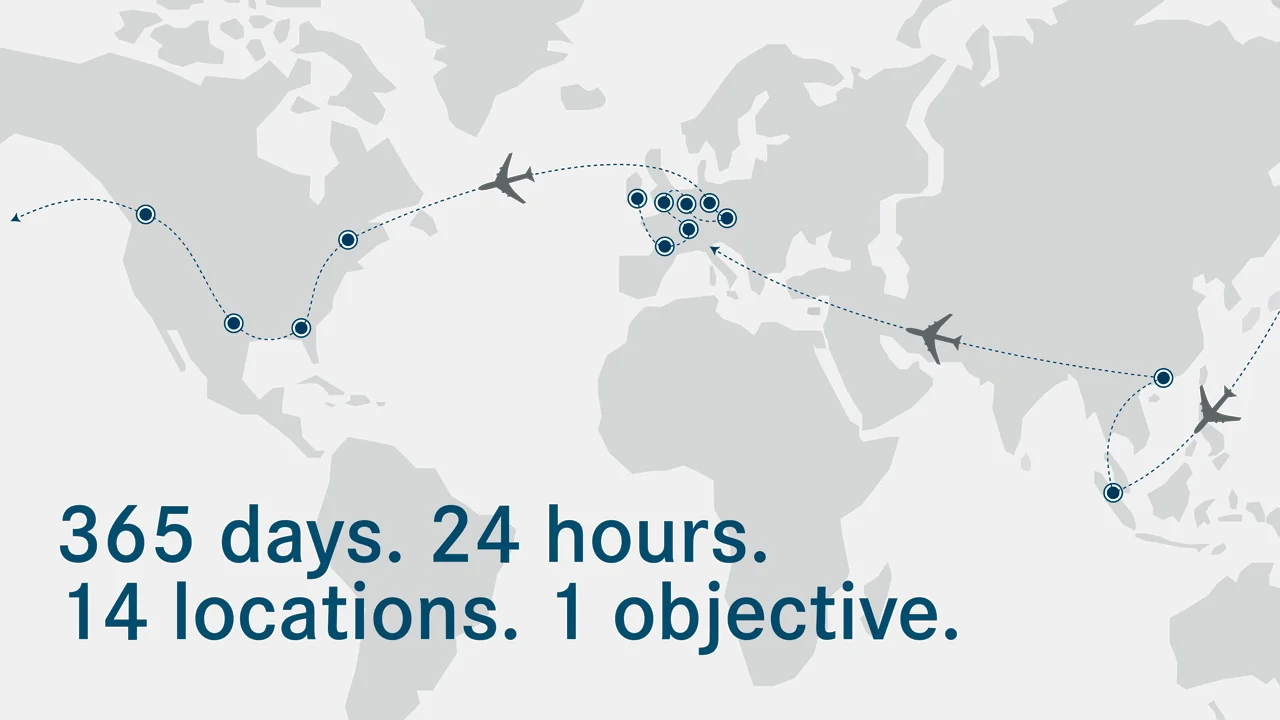aviation
The GE90 Growth at MTU Maintenance Hannover
Germany - Hannover
06.2018 | mins reading time

Putting engines through their paces
The midday bells ring out on Hannover’s Marktkirche (market church). Around ten kilometers further north, at MTU Maintenance Hannover in Langenhagen, a GE90-115B is being rigged up in the test cell. This is the world’s biggest and most powerful engine. MTU’s technicians hook up the multicoupling system, which allows the engine measuring points and test cell measurement system to be connected with a single click. At the same time, they connect the control and supply lines. In the next step, the bolts of the engine mounting are passed through the openings in the thrust measuring bridge. MTU’s staff work fast and fully focused. While testing gets underway in the test cell, the technicians in the rigging center are getting the next engine ready. And next door, they are packing up the engine that has just come off the test cell.
During the test run, the GE90-115B is put through its paces. “We adapt the acceptance test run for each engine to the scope of the shop visit,” explains Thomas Michaelis, senior manager, engine testing. In the control center, the technicians push the thrust lever and run the engine at full load. A 115,000-pound thrust is brought to bear on the test cell. The airflow rate is more than 1.5 metric tons per second. A dozen monitors display all relevant information, graphically enhanced and collated in real time: exhaust temperature, airflow, generated thrust and fuel consumption. A test run takes around ten hours. However, if refinements are required, it can sometimes take considerably longer.
The GE90 Growth has been part of MTU Maintenance Hannover’s portfolio for more than seven years; Hannover is one of the first maintenance shops worldwide to obtain a license for the repair and complete overhaul of this engine family.
MTU Maintenance Hannover is one of the first MRO shops worldwide licensed to repair and undertake major overhauls of the GE90 Growth.





